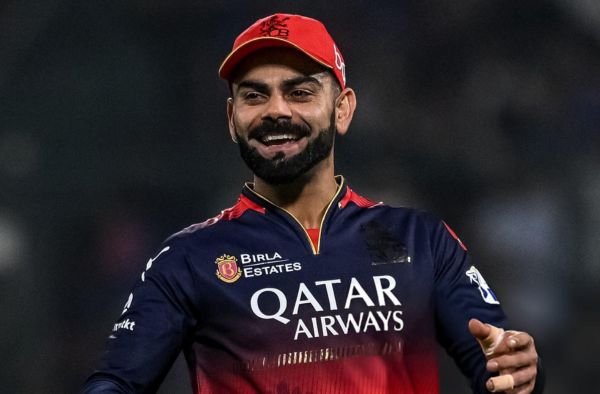Virat Kohli’s name has become synonymous with Royal Challengers Bengaluru (RCB) over the years. As the face of the franchise since the IPL’s inception, Kohli’s unwavering loyalty and eventual decision to step down as captain after IPL 2021 have shaped both his career and the team’s journey. Now, Kohli is speaking candidly about what kept him committed to RCB and why he chose to relinquish the captaincy at a pivotal moment.

A Journey of Loyalty: Kohli and RCB
Kohli joined RCB in 2008, fresh off his U-19 World Cup triumph, and has never played for another IPL franchise since. His loyalty to RCB stands out in an era where player transfers are common and big-money moves often tempt even the best.
Why Kohli Stayed Loyal to RCB
Emotional Connection: Kohli has often described RCB as “family,” crediting the franchise for shaping him as a player and leader.
Sense of Belonging: The support from fans and management made him feel at home, fueling his passion to give back.
Personal Growth: Leading RCB from 2013 to 2021, Kohli grew as a cricketer and a person, cherishing both highs and lows with the team.
“I’ll continue to be an RCB player till I play my last IPL game. I thank all the RCB fans for believing in me and supporting me,” Kohli said when announcing his decision to step down.
The Decision to Leave Captaincy: A Personal Turning Point
Kohli’s decision to step down as RCB captain after IPL 2021 was not made lightly. He revealed that the immense pressure of leading both India and RCB had taken a toll on his mental well-being. By the end of the 2021 season, Kohli felt he had reached a breaking point and needed to prioritize his happiness and mental health.
Key Reasons Behind Kohli’s Captaincy Exit
- Mental Fatigue: Years of non-stop leadership responsibilities left him drained and uncertain about his next steps.
- Desire for Joy: Kohli admitted he “needed to be happy” and that the joy of playing was being overshadowed by stress.
- Team’s Interest: He emphasized that his decision was in the best interest of the team, allowing new leadership to take RCB forward.
- Workload Management: Stepping down from both RCB and India’s T20I captaincy helped him manage his workload and focus on his batting.
“It was something that was on my mind for a while… to manage my workload, which has been immense over the last so many years,” Kohli shared in a heartfelt message to fans and teammates.
Kohli’s Legacy as RCB Captain
- Longest-serving RCB player and captain: Led the team in 132 IPL matches, second only to MS Dhoni in IPL captaincy appearances.
- 2016 IPL Final: Guided RCB to their only final, finishing as runners-up despite a record-breaking season with the bat.
- Playoff Appearances: Led RCB to the playoffs in 2015, 2020, and 2021, leaving a mark with his passionate leadership.
What’s Next for Kohli and RCB?
Kohli remains a vital part of the RCB squad, continuing to inspire with his performances and leadership off the field. The franchise, now under new captaincy, still benefits from his experience and commitment.
Frequently Asked Questions
Q1: Why did Virat Kohli step down as RCB captain after IPL 2021?
Kohli stepped down due to mental fatigue, the need for personal happiness, and to manage his workload after years of leading both RCB and India.
Q2: Has Kohli ever played for another IPL team?
No, Virat Kohli has played exclusively for RCB since joining the IPL in 2008.
Q3: What was Kohli’s best season as RCB captain?
His standout season was 2016, when he led RCB to the final and won the Orange Cap for most runs in the tournament.
Q4: Will Kohli continue to play for RCB?
Kohli has reaffirmed his commitment to RCB and plans to play for the team until his IPL retirement.
Q5: Who replaced Kohli as RCB captain?
Faf du Plessis was named RCB captain for the following IPL season.
Conclusion
Virat Kohli’s journey with RCB is a story of unmatched loyalty, resilience, and self-awareness. By stepping down as captain, he prioritized his well-being while ensuring the team’s future remains bright. Kohli’s legacy at RCB is secure-not just as a prolific run-scorer, but as a leader who always put the team first.